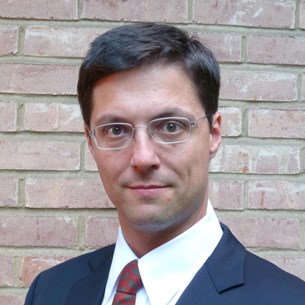Meeting
2018 ASCO-SITC Clinical Immuno-Oncology Symposium

University of Pittsburgh Medical Center, Pittsburgh, PA
Leonard Joseph Appleman, Theodore F. Logan, Daniel Paul Normolle, Marc S. Ernstoff, Rahul Atul Parikh, David F. McDermott, Paul Monk, Thomas Olencki, David Friedland, Jodi Kathleen Maranchie, Lisa Helene Butterfield, Xiaoyan Liang, Michael T. Lotze
Background: We performed a Phase II study of the combination of the autophagy inhibitor, hydroxychloroquine (HCQ), along with high dose IL-2 in patients with advanced renal cancer. 31 patients were entered on this Cytokine Working Group Study conducted at six member institutions;NCT01550367. This combination in murine models was associated with diminished toxicity and increased efficacy, and, in preliminary studies, diminished high mobility group box 1 (HMGB1) protein, consistent with its established role in serving as a Damage Associated Molecular Pattern (DAMP) molecule and inducer of autophagy. Methods: The Study Design involved initiating oral Hydroxychloroquine 300 mg P.O bid. Aldesleukin (600,000 IU/kg) was administered q8hrs in courses consisting of two cycles separated by 7-14 days and constituting a single course. For patients with stable or responsive disease, additional courses were administered every approximately 85-90 days. Serum, plasma, Paxgene tubes, and peripheral blood mononuclear cells were obtained sequentially prior to therapy initiation and sequentially on D1 and D2 of each cycle following initiation of therapy. Results: 31 patients (9F, 22M) have been registered and 3 confirmed complete responses observed; the current median overall survival has not been reached in the 29pts. The Baseline Karnofsky Score of 100 (17pts), 90 (13pts), and 80(1 pt). The mean age was 57.5 years, range = (45.2, 68.8). 26 patients had a mean of 12.5 doses +/-4.7 (3, 23) with 13 pts receiving a second course and 4, a third. Platelet nadir was diminished from baseline by 26%. Of the 27 patients in the data set, 18 had at least one Grade 4 toxicity at least possibly related to treatment, and 9 patients had at least one Grade 3 adverse event at least possibly related to treatment but no Grade 4 events.Serologic and cellular data and complete clinical data will be submitted with the completed abstract. Conclusions: The combination of high dose aldesleukin and daily oral HCQ was well tolerated. We have concluded this trial and will report mature survival data, toxicity data, and biomarkers/autophagy measures with the final submission. Clinical trial information: NCT01550367
Disclaimer
This material on this page is ©2024 American Society of Clinical Oncology, all rights reserved. Licensing available upon request. For more information, please contact licensing@asco.org
2018 ASCO-SITC Clinical Immuno-Oncology Symposium
Poster Session
Poster Session B
Developmental Therapeutics,Genitourinary Cancer,Head and Neck Cancer,Lung Cancer,Melanoma/Skin Cancers,Gastrointestinal Cancer,Breast and Gynecologic Cancers,Combination Studies,Implications for Patients and Society,Miscellaneous Cancers,Oncolytic Viruses,Hematologic Malignancies
Biomarkers and Inflammatory Signatures
NCT01550367
J Clin Oncol 36, 2018 (suppl 5S; abstr 106)
10.1200/JCO.2018.36.5_suppl.106
106
G3
Abstract Disclosures
2023 ASCO Annual Meeting
First Author: Bhavika Patel
2022 ASCO Annual Meeting
First Author: Kirk Beebe
2022 ASCO Annual Meeting
First Author: Meredith McKean
2022 ASCO Annual Meeting
First Author: Alexander Starodub